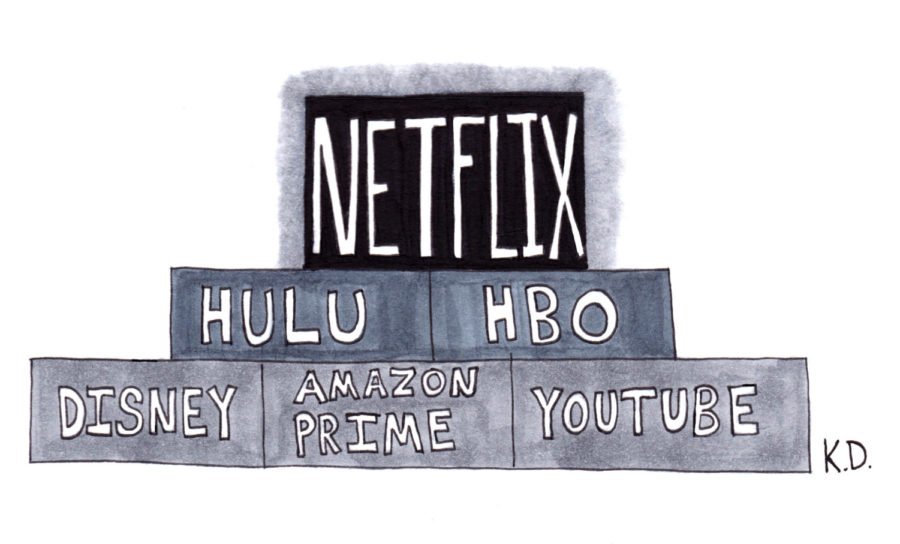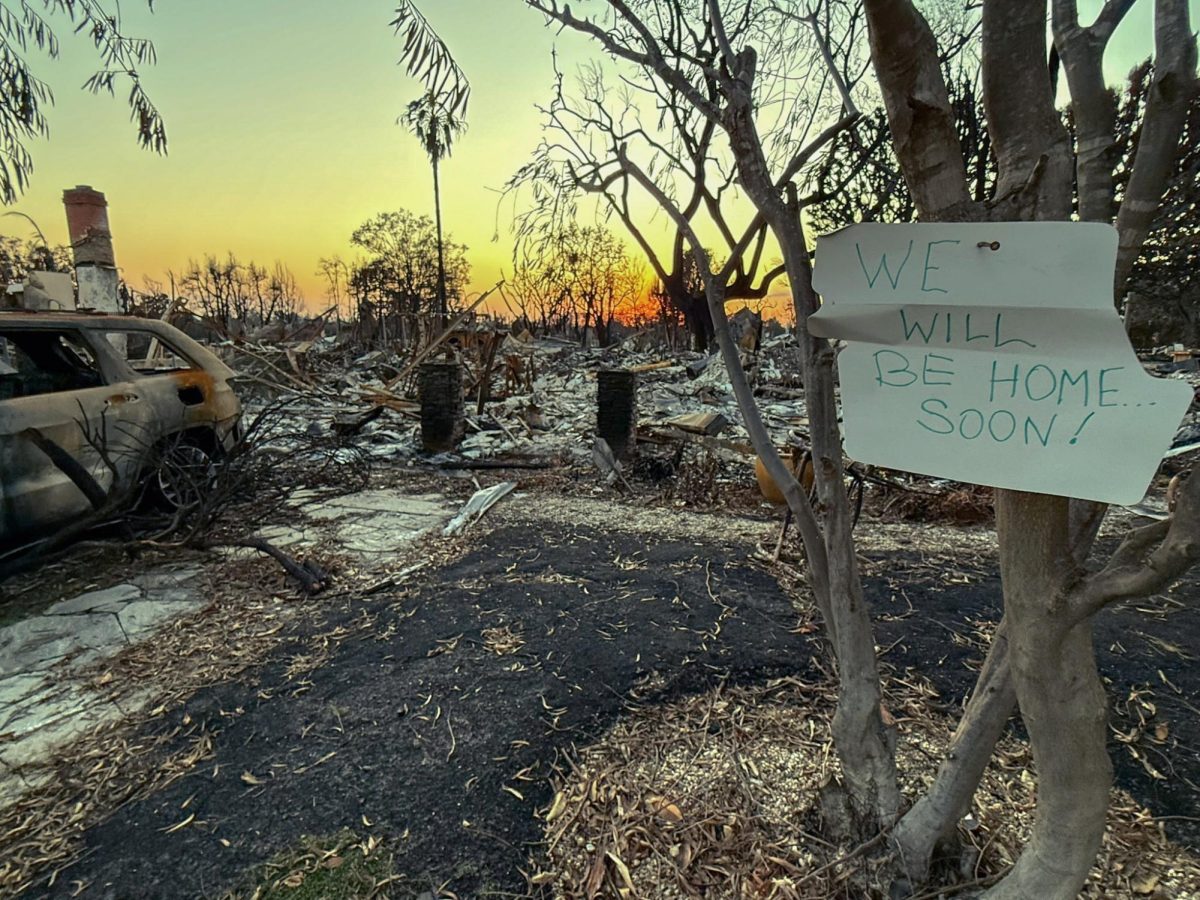Netflix: The Great Exodus
Streaming’s Shattered Stability
November 12, 2019
The hearty thump of your backpack echoes through your house as you return home from a long day of school. Exhausted, you throw your limp body onto your couch and pick up the TV remote. As you sluggishly scroll through Netflix’s homepage, it seems as though you’ve seen everything good it has to offer. Deciding to branch out, you randomly select genres, hoping to stumble upon a fresh TV show or movie. Horror? Just the same old. Rom-coms? Nope. Nothing new. It even seems like there were fewer movies than the last time you checked. Third time’s the charm, right? Well, sci-fi proves that wrong. After finally deciding to watch Friends for the hundredth time, you turn your attention to Instagram, letting the TV fade into background noise. It’s almost as if the TV was off.
But as new streaming services are gaining traction and the plethora of content that used to characterize Netflix’s home page diminishes, Netflix is being slowly cleansed of the classics that drew its subscribers. The beloved sitcom The Office is being reclaimed by its mother company, NBC, as it plans a new streaming service, attempting to recreate Netflix’s success. While this addition may delight cable TV subscribers, this withdrawal emphasizes how the schism between older, traditionally-distributed content and newer, individually-produced material is becoming less pronounced. NBC’s traditional role as a cable TV network is being transformed and modernized as it adapts to today’s cord-cutting, streaming-fueled society.
While Netflix’s content ranges from blockbuster action films to best-picture-nominated dramas to children’s cartoons, new services such as Disney+ cater to more specific audiences, further dispersing media content that used to fall under Netflix’s umbrella. This subdivision of content forces consumers to pick and choose what services they subscribe to, leading many to sacrifice their personal preferences to settle on crowd-pleasing compromises that also meet their financial needs, thus decreasing Netflix’s universal appeal. Although Netflix may still be a widely used service, companies like HBO, owned by WarnerMedia, have never left the background with shows like Game of Thrones, Succession, and Last Week Tonight with John Oliver, to name a few.
The prevalence of distributors producing original content is spreading and evidenced by Netflix’s recent additions. They’re often hit-or-miss –– the over-sexualized, cliched movie The Kissing Booth received a whopping 17 percent on Rotten Tomatoes –– but shows like Stranger Things have garnered both incredible popular success and critical reviews.
Moving forward, the streaming wars will become more complex, as services such as NBC’s Peacock, Disney+ and Apple TV+ continue to compete over their content output. The ultimate determiner where consumers choose to spend their money.












